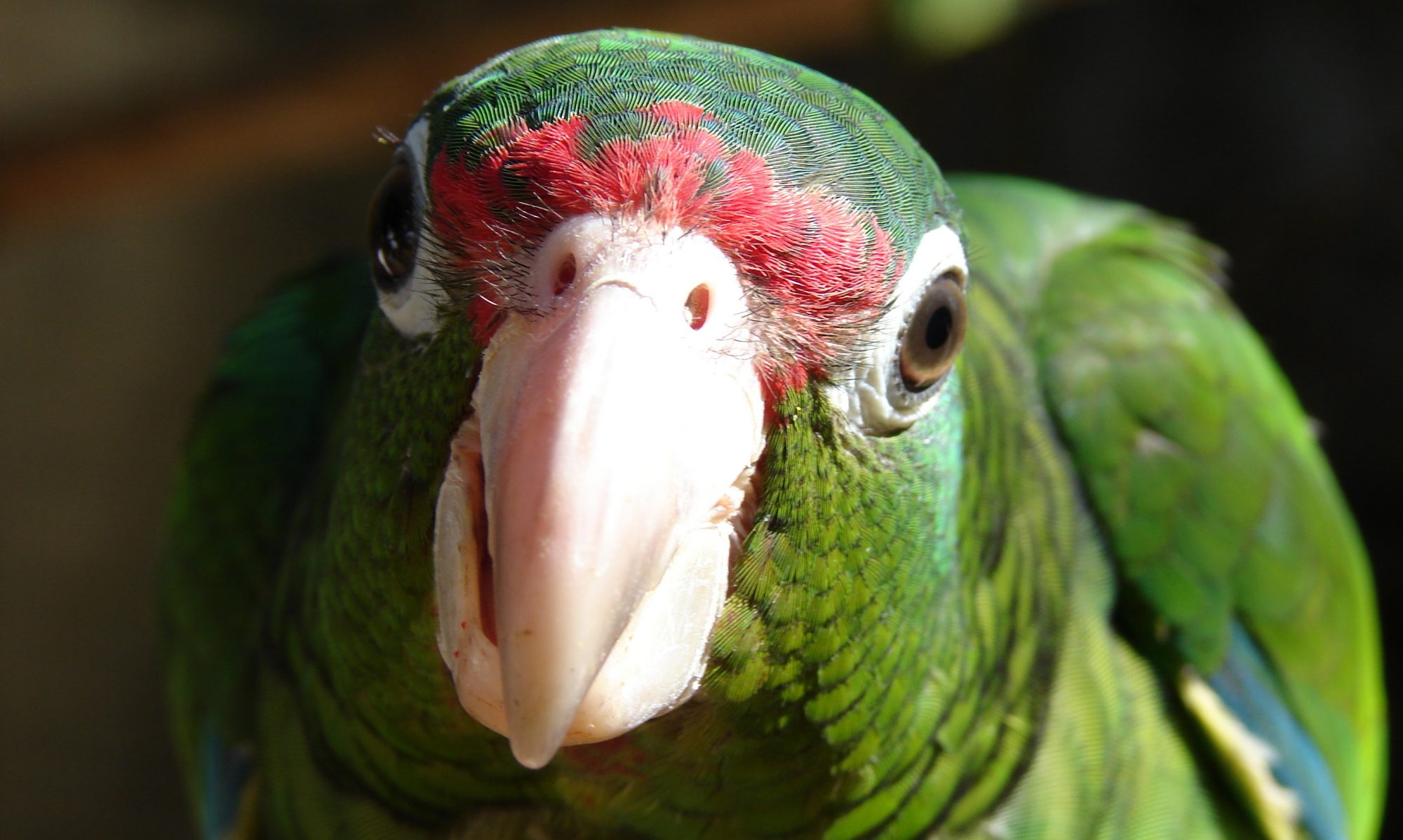Amazon.com is always working hard to protect their brand and one aspect of that is to check on their affiliate’s websites and making sure that they all are following their terms & conditions. Whenever you sign up as an Internet Affiliate with Amazon or any other company, you are actually bound by contract (even if you don’t feel like reading that contract then… it still applies to you!)
The point for Amazon is they want to keep it clear that when you send people to their website, it is because you want to make money. But they also want to keep their brand in good standing and they have to protect their data which includes the pictures of the products their offer, among other things.
In the following, I talk about the various points that got some people banned or at least temporarily kicked out of the Amazon Affiliate program.
Avoid Creating Your Account Too Soon
Amazon, like any business, is looking for individuals to help make sales. If you send no traffic or very little and no one purchases anything, then they prefer to not have you onboard.
For that reason they have a policy in place: You have to make at least 3 sales within your first 180 days. If you can’t do that, you will be removed from the program.
For additional details, please check out Mistake #1 in my post about Mistakes to Avoid as an Internet Affiliate.
Note that this applies to nearly all Internet Affiliate accounts you will create. Some accounts require you to keep a certain level of sales too. You can be ramping up to that level and then you like don’t have the right to go down at any time or you lose your account. I suggest you pay attention to such rules because they can mean that you may lose your income in a flash.
You Cannot Say You Are Amazon or Part of Amazon
You can only say that you are an (Independent) Amazon Affiliate.
In most cases, that is enough, just only say “I’m an Amazon Affiliate” or something of the sort, next to your links. It is not a requirement to make it next to each link. Actually, you only need to tell people you are an Amazon Affiliate in your Disclaimer, Terms & Conditions, and other such legal documents. However, it is a good idea to make it appear on all pages. That way it is really clear. To do that with WordPress, add a Widget to your Sidebar or Footer.
Note that there is a very specific word you have to use on that one. On Feb 12, 2018, it reads as follow:
“We are a participant in the Amazon Services LLC Associates Program, an affiliate advertising program designed to provide a means for us to earn fees by linking to Amazon.com and affiliated sites.”
Please make sure to check the current wording of your Affiliate Contract and copy/paste that into your website.
This is the wording for Amazon.com, but it is likely that other affiliate programs have similar requirements. Please take the time to read your contracts at some point. You may be amazed what you learn when you do that.
Your Links Must Be Publicly Accessible
I wrote All Your Amazon Affiliate Links Must Be Public just about this one problem because I think it’s complicated for most people, especially beginners. There are many different ways to look at it and many things you just can’t do.
As a rule of thumb, the only places where you can put your links are your Niche Website Pages and Posts and those need to be public (i.e. not pages that require an account to be accessed.)
Also, you are not supposed to use your own links. That being said, I click on my links all the time to make sure that they work and so far I did not have a problem. However, I don’t purchase the items when I do that. I would suggest that you wait a couple days after testing some of your Amazon links so that way the effect of the link wore off and you can purchase whatever you’d like safely.
Further, Your Affiliate Links to Amazon Must Not Include the Word Amazon
Whenever you create a link to a product, you can’t create a link that looks like this:
Find Product Blah on Amazon.com
The name “Amazon” can’t appear in the link itself. You may include it before or after, but not in the anchor text otherwise it will get you kicked out of the program.
To find whether one of your links includes the word Amazon in it, you can use the Broken Links plugin. It will read all your links and give you the ability to search them for the word Amazon (or any other words if that matter.) But please, make sure to read my warning on that other page: you want to make sure that the robot does not check for the amzn.to links because that will get you banned.
Note that misspelling Amazon in your link text is not going to get you out of it. Using Amzn or other abbreviations either. I’m not sure whether you could use the word in case the item you are selling uses the word (i.e. a book talking about the Amazon River…) I would probably look into a different book or just say you can find it there and put the link in the “there” text and not use the name of the product. Just to be sure.
This is the same as using another company’s trademark without their permission or a good reason to use that name (many journalists mention certain companies in their article and they are not going to ask for anything to do that. I could mention Apple and not get in trouble. It just depends on how you use the name also…) What you can’t do here is use the trademark as if it were yours. I don’t own Amazon or Apple so I can’t use them in a way that would make you think I do.
Links Are Not Allowed In Popups
In most cases, on a Niche Website, you are not going to have a popup window. Well… maybe you do have one to ask people to register with their email to receive your incredible newsletter (make sure you have time to generate that newsletter, though… don’t put yourself in a bad situation! Although it could be to send specials, etc. once in a while whenever available.)
Note that if you have a popup that explains some details about something about the product you are reviewing/talking about and you happen to have a link there, it is still okay. But to be safe, I would recommend that you avoid popups except to get your visitors email addresses.
Automatically Opening a Page
Many Internet Marketers have been abusing this one so much!
In the old days, people would do all sorts of things like pop-under or opening a new tab automatically which will include a very slow page (tons of animations that you don’t even see since it popped under!) Most browsers prevent those popups now anyway. Still, Amazon forbids such behavior 100% and will ban you if you use such a feature.
Again, with a simple helpful Niche Website, why would you need any kind of popups?
And Also: Checking Links with Robots
Amazon.com will never send a person to a 404 Not Found page. If your link is completely broken (i.e. you did not copy/paste it properly), you won’t get a commission, though. But a valid link that you created for your account will always work and send people to similar products, a search, whatever works… something to influence people to purchase.
So once in a while, you may want to check that your links are still sending people to the right product.
However, using a robot that checks your links over and over again to make sure that they work is forbidden. The Broken Links plugin will do that by default, though. Please make sure to include amzn.to to the list of domains to not check for broken links.
Note that rule applies to any kind of automated clicks. Unfortunately, search engines and other spiders will follow your Amazon Affiliate Links even if you put “nofollow” on the links. I’m not too sure how Amazon can know that you are not the one generating robot clicks.
Using Pictures from Amazon
It is allowed to use pictures from Amazon, but apparently, you’re not allowed to host them on your own servers.
There is also a rule about resizing images, you must make sure that when resizing you keep the same ratio. This means you can’t make the images narrow or wide. More or less, changing their size just with your mouse is probably not going to cut it right. A better way would be to edit the width and height parameters and use a percent which is the same for both fields. Fortunately, WordPress does that automatically by default. When you click an image in your WordPress editor, you get small square at the corners and by moving one of those corners you resize the image and it will keep its ratio automatically.
Prices can’t be Included on Your Niche Website
The price of the item can change over time, for one thing, but I think that Amazon forbids you from doing so because price is something curious people are interested in finding more about and as a result are more likely to click on your link. I don’t see any other good reason for that one.
For sure, you can certainly talk about the bulk part, like products in this price range ($100 to $150) or something like that, but not a specific price for a specific product. Plus people could have specials that apply to that product changing the price that they would be paying and that you could not know what it is.
Product Reviews on Amazon.com Are Amazon.com Property
Do not copy and paste reviews directly from Amazon.com. They reserve the right to remove them or edit them and just copy/paste would not do. Also, if your users want to read them, you can simply send them there with your affiliate link.
This is considered Intellectual Property and it is an offense to copy such. Unless you are a lawyer, just don’t do it. There is a fine line you could walk in the real world, but as an affiliate, it won’t matter a bit. You’ll lose your account.
You may write your own review and use some information from the reviews appearing on Amazon.com, just don’t just copy & paste them. Copyright-wise, you are allowed to get a small part of a text from a book (i.e. a quote) but I would not even do that to stay 100% in the clear.
Product Ratings on Amazon.com Are Amazon.com Property
 The ratings are their property and since it may change over time, they do not want you to copy that information at any time. I don’t see a good reason for you to do anything about the ratings on their website anyway. But maybe I’m wrong and showing a 5-star rating on your website could influence some people to click on that darn Affiliate Link… Oh well… you could come up with your own sort of quality rating using some other system than yellow stars. For example, you could assign a nice medal to any product that you think is top notch. I don’t think that would be forbidden as long as you don’t imply that this is the choice of the buyers on Amazon.com but really just your own personal opinion.
The ratings are their property and since it may change over time, they do not want you to copy that information at any time. I don’t see a good reason for you to do anything about the ratings on their website anyway. But maybe I’m wrong and showing a 5-star rating on your website could influence some people to click on that darn Affiliate Link… Oh well… you could come up with your own sort of quality rating using some other system than yellow stars. For example, you could assign a nice medal to any product that you think is top notch. I don’t think that would be forbidden as long as you don’t imply that this is the choice of the buyers on Amazon.com but really just your own personal opinion.
If you have enough users and they are responsive, you could also do your own survey: Did you purchase product ABC? Please rate it! Then use that information for your own website rating system. Overall, I think that for a Niche Website you don’t need ratings like that, but that’s your call.
I’ll Give You a Reward for Following My Affiliate Links
This is not allowed by Amazon.com. If you want to offer a reward for something, make sure it’s not because people follow links and purchase products on Amazon.com. For example, you could offer a reward to people who post at least 5 constructive comments on your website.
Forbidden Websites: Violence and Sex
Amazon.com doesn’t allow websites with violence or sexually explicit content. If you plan to have such, I would strongly advise you think about it twice. You’ll have all sorts of limitations. If you’re just starting, just forget it.
For violence, you probably can get away with nearly any type of e-Commerce solution. For sexually explicit websites, you’ll have to search for a credit card processor that accepts to work with such businesses. Let me tell you something: it will cost you more than pretty much any other type of products.
Another thing that Amazon.com sells, but does not provide commissions for: Alcohol. In the US (most countries, actually) you need to have a license to be allowed to sell alcohol and they don’t want to waste their time on verifying that you have a license and it is up to date. So you can send people to purchase alcohol but you’ll get $0 each time.
Products For Children Under 13
This one is difficult to deal with. The parents of children under 13 can, of course, purchase products and you won’t have a problem there. However, if you have a website that aims at children and your main visitors are children under the age of 13, then you can’t include Amazon Affiliate Links.
Unfortunate, you may say, but this is not just Amazon.com. Most laws in the U.S. and other Western World Countries (as we still call them) protect children under 13 in a similar way. So don’t be to harsh on Amazon for that one.
I don’t think that you will find a way to circumvent this problem on your children website…
Medication and Medical Devices
In the US, people who work or provide services with MediCare, MediCaid or another Federal Government Health program can’t make commissions on products that will be reimbursed by those services.
Now, this can be really complicated so I would suggest that you avoid any medically related anything if you are working with one of those agencies. I can’t tell much more about that as I don’t really know enough about it. These programs are likely to reimburse many things that people get for their health benefits so I would not work on a website in that field to start with.
I’m also not too sure how you could control what people end up buying. The other day, someone clicked on one of my links for really nice dice and they bought other really ugly ones (my own opinion, of course!) So if you have a website talking about outdoors and you send someone to Amazon to purchase a carry-on cooler and they purchase their antibiotics as they’re at it… (I don’t think Amazon sells pharmacy, though, but just for the sake of example.) There is really nothing to prevent such events from happening.

